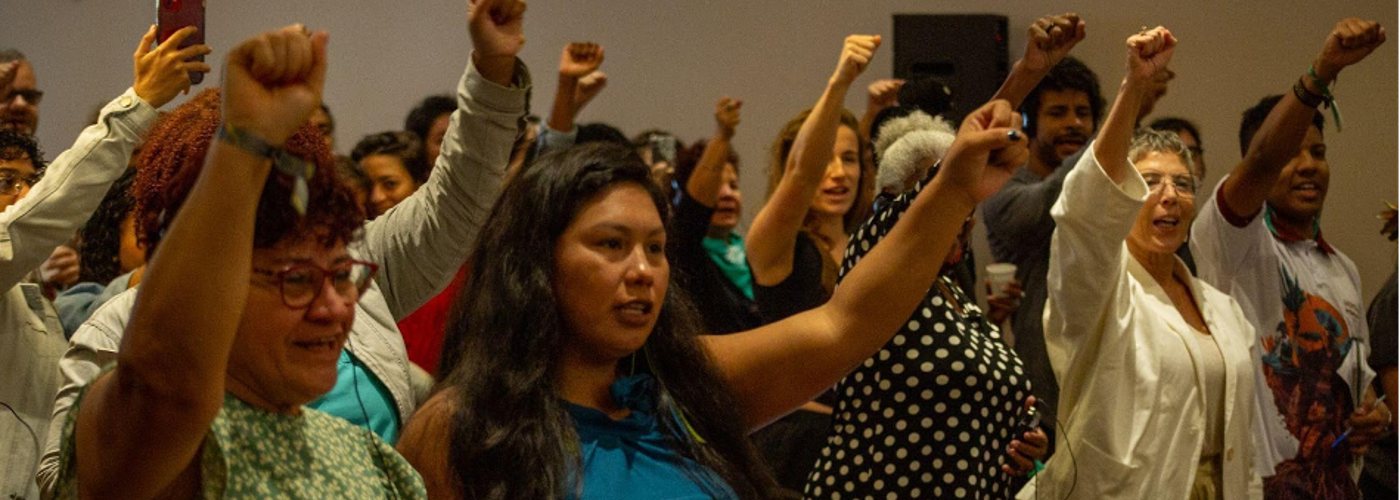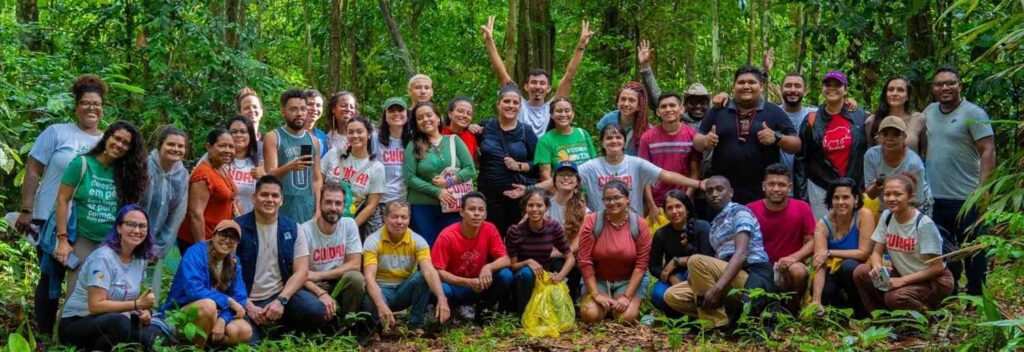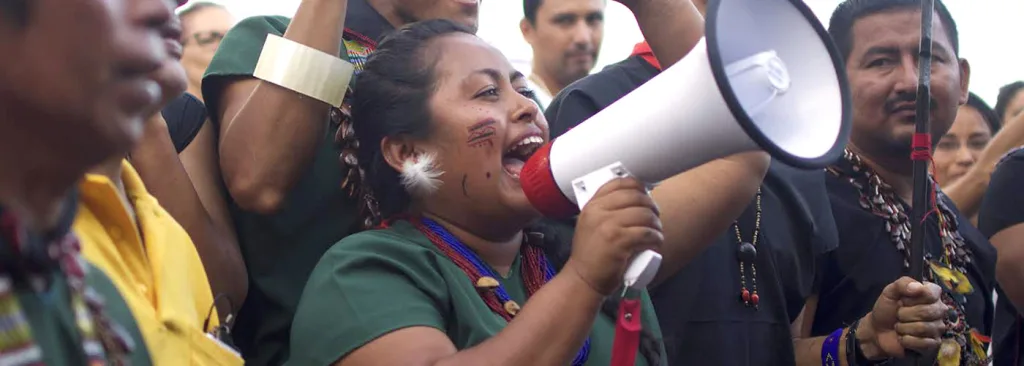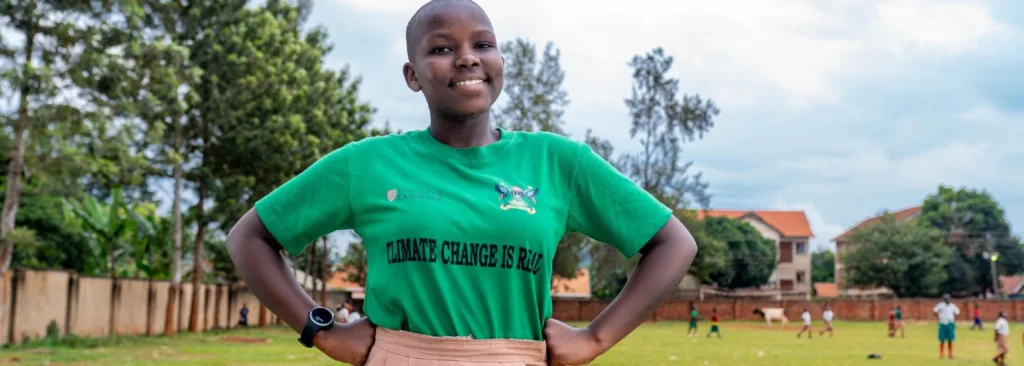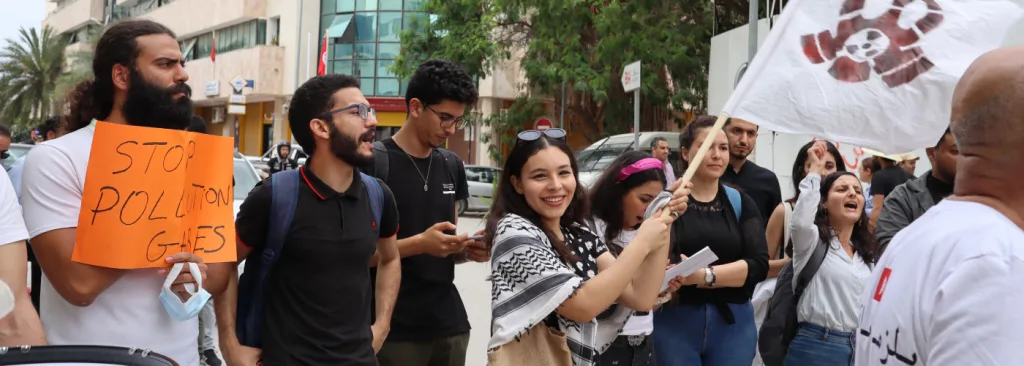By Paula Moreira, program manager, and Danielle Almeida de Carvalho, project officer, of Voices for Just Climate Action in Brazil
Extreme weather events are becoming increasingly frequent worldwide. Whether it’s the ongoing drought in the Amazon devastating Indigenous communities in Brazil, Bolivia, Peru, and Colombia. Or the floods in Niger, Chad, and Mali that have killed over a thousand people. Or heat waves reaching 50°C in North Africa. The climate crisis is real and hits the world’s most vulnerable populations the hardest because they have the fewest resources to cope with it.
A little bit of context
To properly understand why populations in the Global South are hardest hit, we need to see the crisis within its context: centuries of colonial domination, slavery, oppression and marginalization, justified by white supremacy and patriarchy, and largely motivated by commercial interests. Once we understand that climate change is also a crisis of the existing power structures between the Global North and the Global South, we can define a much more effective approach to combating it.
And that is by working hand in hand in decision-making arenas with those affected most. These are the populations best positioned to contribute to the debate and envision solutions for addressing the climate crisis. Particularly in areas of climate justice, transparent climate financing, and climate solutions rooted in traditional and ancestral knowledge. In these arenas, the participation of countries like Brazil, Uganda and Tunisia that have similar challenges and colonial histories is essential and will become increasingly important. The same can be said for climate justice social movements and civil society as a whole. And of course, for women and Afro-descendants from the Global South. They face the greatest climate change impacts, and have been historically discriminated against and marginalized from decision-making processes.
G20 Social: role and leadership of women from the Global South
With this in mind, Hivos, Equit Institute, Akina Mama wa Afrika and Acesa, hosted a panel at the November G20 Social Summit in Rio de Janeiro called “Just Transition and Climate Emergency: The Role and Leadership of Women from the Global South.” Five inspiring women stepped on to this platform to discuss innovative climate solutions led by women and highlight the role of social justice in climate action.
Graciela Rodrigues, coordinator of the Equit Institute, kicked off with a speech on feminist foreign policy and how to confront economic ultra-liberalism – a great cause of poverty and climate injustice – in the context of the G20 and BRICS. She emphasized the need for care work policies in the global economic agenda, while warning social and liberation movements of the need to establish strategies to fight new forms of capitalism and oppression.
Next, we heard from women leading climate solutions in local communities. Marcela Toledo of the Decodifica Institute, a Hivos G2C2 partner, presented solar energy initiatives led by women in the outskirts of Rio de Janeiro as a solution for the community’s energy autonomy. Vanessa Cristina of Acesa, a Hivos VCA partner, shared ancestral practices led by women in Médio Mearim, Brazil. Descended from generations of coconut breakers, Vanessa explained the ancestral practice of harvesting oil-rich babaçu palm nuts, which resemble coconuts. Done by women, the harvest also serves as a form of social organization and political mobilization to protect their territory against external threats such as urban expansion and the advance of agribusiness and its aerial pesticide spraying.
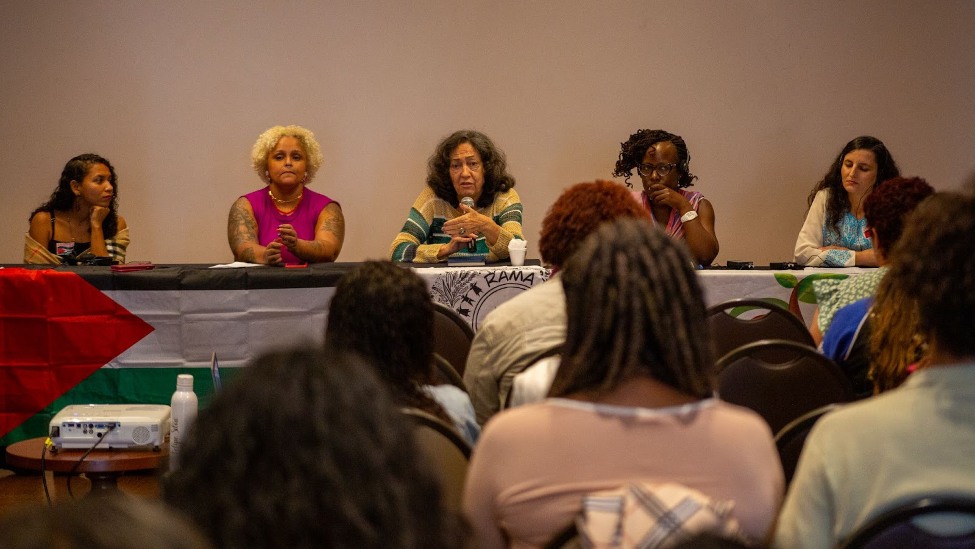
Our own Essia Guezzi from Tunisia spoke about women leading local climate solutions in Tunisia to overcome the dominance of patriarchy and capitalism in food systems, such as keeping Indigenous seeds. Essia described the situation of fishing and agriculture in Tunisia and how industrial fishing interests and urban growth are destroying artisanal fishing and agriculture, largely done by women.
The final speaker, Faith Lumonya of Akina Mama wa Afrika, a VCA global partner, addressed how and why women’s economy and solutions matter for climate justice. A key point she made is that a “just transition” is typically seen from the perspective of the Global North. Former colonial powers are pushing environmental and climate agendas on former colonies that in some cases still lack access to electricity. This makes it impossible to talk about a just transition. Faith emphasized that addressing the climate crisis requires recognizing that our global economic systems and power structures are legacies of profit-driven colonialism and the slave trade. And today they are still driven by privatization, deregulation, and trade liberalization, all of which put profits over people and the planet.
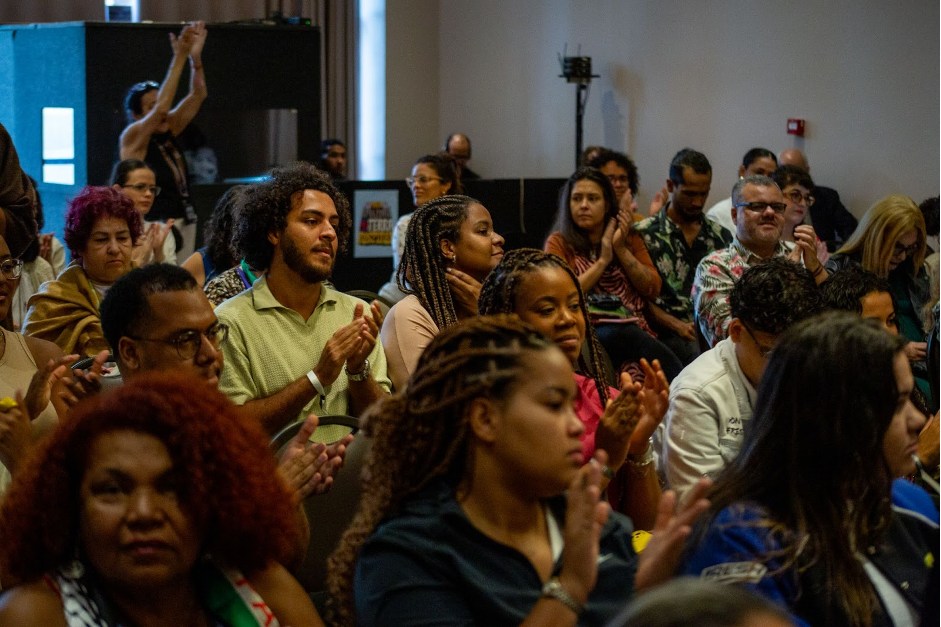
The road ahead after the G20
The G20 reached several key agreements aimed at tackling global challenges, particularly those affecting women and marginalized communities. Consensus was reached on the need to tax large fortunes, fight hunger, end wars, and establish ethical guidelines and regulations for artificial intelligence. A strong commitment was also made to take more decisive action against violence targeting women and improve legal frameworks and support systems for survivors.
However, the G20 operates within a framework of power imbalances and unequal representation, often sidelining the interests and voices of marginalized communities and the Global South. Without addressing these structural flaws, it risks perpetuating the very inequalities it seeks to resolve. The so-called G20 Social, an attempt by the Brazilian presidency to organize a special space for civil society participation, turned out to be very limited. But organizations also hosted independent events. The People’s Summit vs G20, a spontaneous and authentic initiative, circumvented the G20’s limited spaces by hosting an International Peoples’ Tribunal against imperialism.
Hivos remains committed to supporting women’s leadership and the efforts of movements led by women. We’ll be out in force at the Women’s March on March 25, 2025, which is a crucial platform for raising awareness and advocating for women’s rights, climate solutions and gender justice. At COP30 in Belém next November, we will continue to advocate for climate justice, while amplifying the voices of women from the Global South in climate decision-making.

